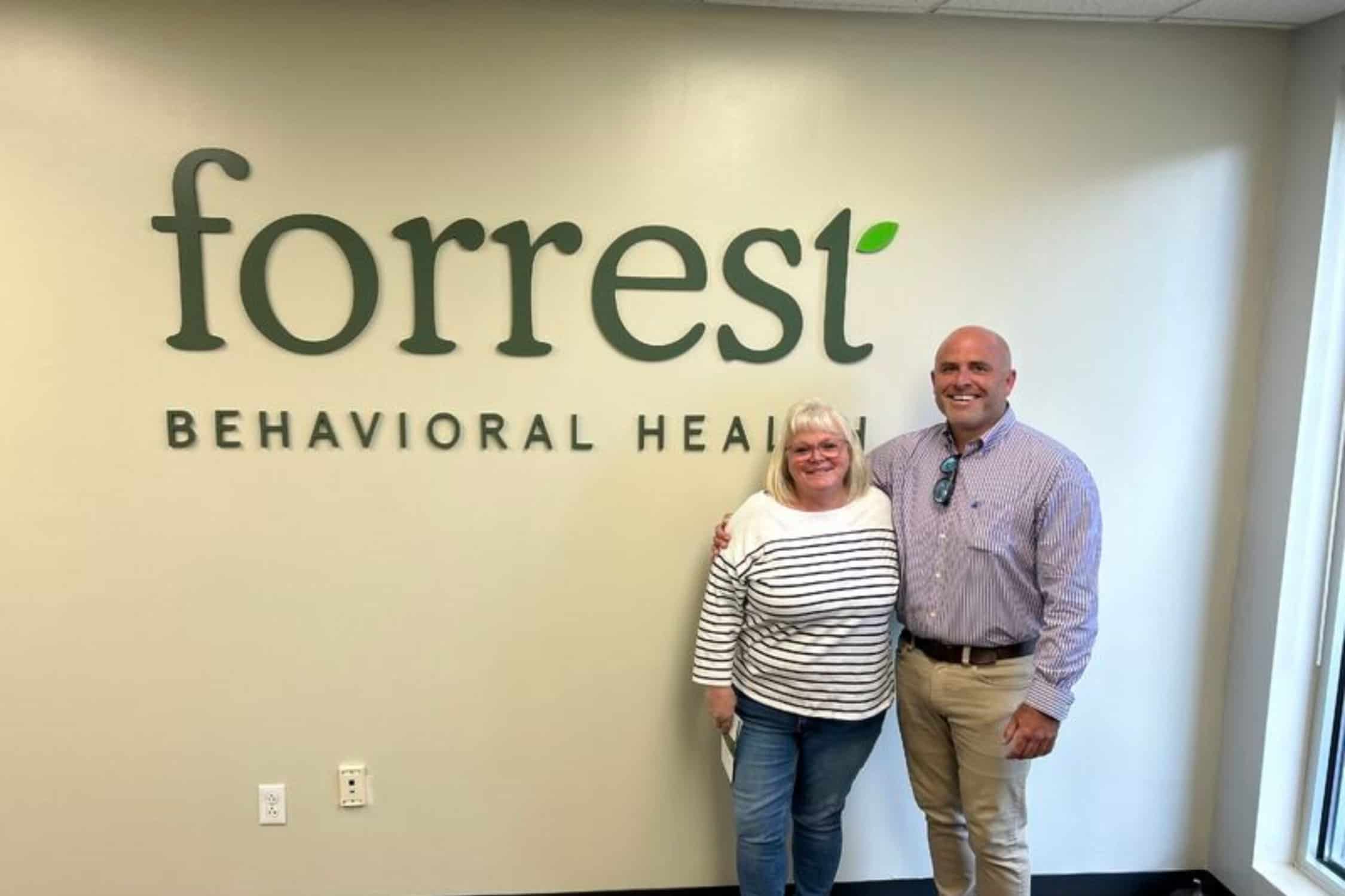Many people are unfamiliar with or deterred by the term “partial hospitalization;” however, this unique type of treatment program offers a middle ground between an inpatient program and intensive outpatient treatment.
A partial hospitalization program (PHP) provides an alternative to a typical residential program, providing a comfortable, non-institutional environment where patients can receive the critical treatment they need without the requirement to stay overnight.
PHP programs often represent a safe space where patients can address their mental health conditions and issues with addiction for a specific length of time while still maintaining some semblance of a normal life. Forrest Behavioral Health’s PHP program offers patients a comprehensive and also personalized approach to addiction treatment.
The First Step: Assessment and Admission
Your journey begins with a comprehensive health assessment. Our expert and experienced clinicians at Forrest Behavioral Health will welcome you into our facility and conduct thorough evaluations to design the best treatment program for you.
We will review your medical history, substance use disorders, mental health, and personal circumstances that have led to the initiation of this program. Participating in this process ensures that the PHP program we provide will guarantee a personalized level of care and also a treatment plan that addresses all of your needs.
A Day in the Life: An Overview of the Daily Schedule
While partial hospitalization programs (PHPs) are generally more comprehensive than intensive outpatient programs (IOPs) and less intensive than residential treatment, all these programs share a common feature: a structured environment.
Within a partial hospitalization program, you will spend several hours at our outpatient center five days a week for several weeks. This structured schedule is critical for recovery, providing stability and a routine that aids in preventing relapse.
Here’s a breakdown of what your daily schedule might look like at Forrest Behavioral Health:
- Morning check-in: The day begins with a group check-in. This is a safe space to share your feelings, set your daily goals, and receive support from peers and also staff.
- Therapeutic sessions: Your therapeutic sessions may include a mix of individual, group, and family therapy to address any mental health conditions contributing to your addiction. By using various styles, like cognitive behavioral therapy, our experts will help you develop coping strategies and build a strong support system.
- Educational workshops: The best way to prevent relapse is to educate yourself and equip yourself with the necessary tools. Our workshops cover various topics, including relapse prevention, stress management, and also healthy living. Each workshop is filled with treatment activities designed to support your long-term recovery efforts.
- Holistic activities: Activities like yoga, meditation, art therapy, fitness, and other holistic sessions promote physical and mental health care, emotional balance, and spiritual growth.
- Lunch break: Enjoy a nutritious meal and take the time to relax and socialize with others in the program.
- Afternoon sessions: The afternoon sessions will continue your program, reinforcing and practicing the knowledge and skills you’ve acquired.
- End-of-day reflection: Your day will end with a reflective session to discuss your successes, challenges, and also treatment goals for the day ahead.

Partial Hospitalization Program: Personalized Treatment Plans
At Forrest Behavioral Health, we recognize that your recovery journey from substance use is unique. Our partial hospitalization program (PHP) is a highly individualized program designed to meet your specific needs and also address the challenges uncovered in your initial assessment.
We will work to address and treat any mental health condition or disorders you may face through our highly customized treatment plan, including methods like individual therapy and medication management. This plan may include:
- Cognitive behavioral therapy (CBT): CBT works to address mental health issues by aiding you in identifying and changing negative thought patterns and also behaviors associated with addiction.
- Dialectical behavior therapy (DBT): DBT is especially effective for those who may suffer from a co-existing mental illness, providing education on skills for emotional regulation, distress tolerance, and interpersonal effectiveness.
- Medication-assisted treatment (MAT): Medications are a crucial part of treatment for some patients. Our medical team carefully monitors and adjusts medications to support your recovery program.
- Family therapy: Addiction affects the whole family. Family therapy sessions help repair relationships, improve communication, and create a supportive home environment.
- Life skills training: Our training includes a variety of methods to ensure your transition to everyday life is seamless. By addressing topics like your financial and also mental health, as well as your future job readiness, we ensure you will confidently move into the next phase of your life.
A Supportive Community Led by a Mental Health Professional
You don’t have to face recovery alone. At our Massachusetts rehab, we provide a treatment program that emphasizes community and connection. Participants in our partial hospitalization program often form strong bonds through individual and group therapy sessions.
Additionally, our compassionate staff offers guidance and assistance in healing and strengthening connections with family members, fostering mutual support and guidance. This ensures your program is sustainable once you’ve completed treatment and also are ready to re-enter your day-to-day life.

Flexibility and Integration
The flexibility that comes with a partial hospitalization program has significant advantages. This form of intensive outpatient treatment allows you to enhance your education about your substance use disorder while maintaining the comfort of your routine at home.
You will also be able to reinforce the therapeutic techniques you are learning in your individual and group therapy sessions, apply coping strategies learned in various workshops, such as art therapy, and also interact with your support network.
Continuous Progress Monitoring
Recovery from substance use is a dynamic process that requires ongoing assessment and adjustment. At Forrest Behavioral Health, we closely monitor your progress. Regular reviews and feedback sessions ensure that your treatment plan remains effective and responsive to your evolving mental health concerns, symptoms, treatment goals, and needs.
Our outpatient treatment programs are designed to adjust treatment methods as necessary to address emerging challenges, symptoms, or goals. We also coordinate with your insurance company to ensure that your treatment is covered and also affordable.
Preparing for the Future
As your personalized partial hospitalization program with Forrest Behavioral Health comes to a close, we’ll help you plan for the next stage of your addiction and mental health treatment. This may include other forms of outpatient care, additional treatment options, medication management, support systems, and also recovery planning.

Taking the Next Step Toward Recovery
Finding the proper support for mental health treatment and addiction recovery can be challenging. At Forrest Behavioral Health, our partial hospitalization programs offer personalized, intensive treatment to empower you or your loved ones on their journey to lasting recovery.
If you or a loved one is struggling with addiction, our PHP programs are here to help. Step toward a healthier future and contact our team today at (781) 570-5781.
